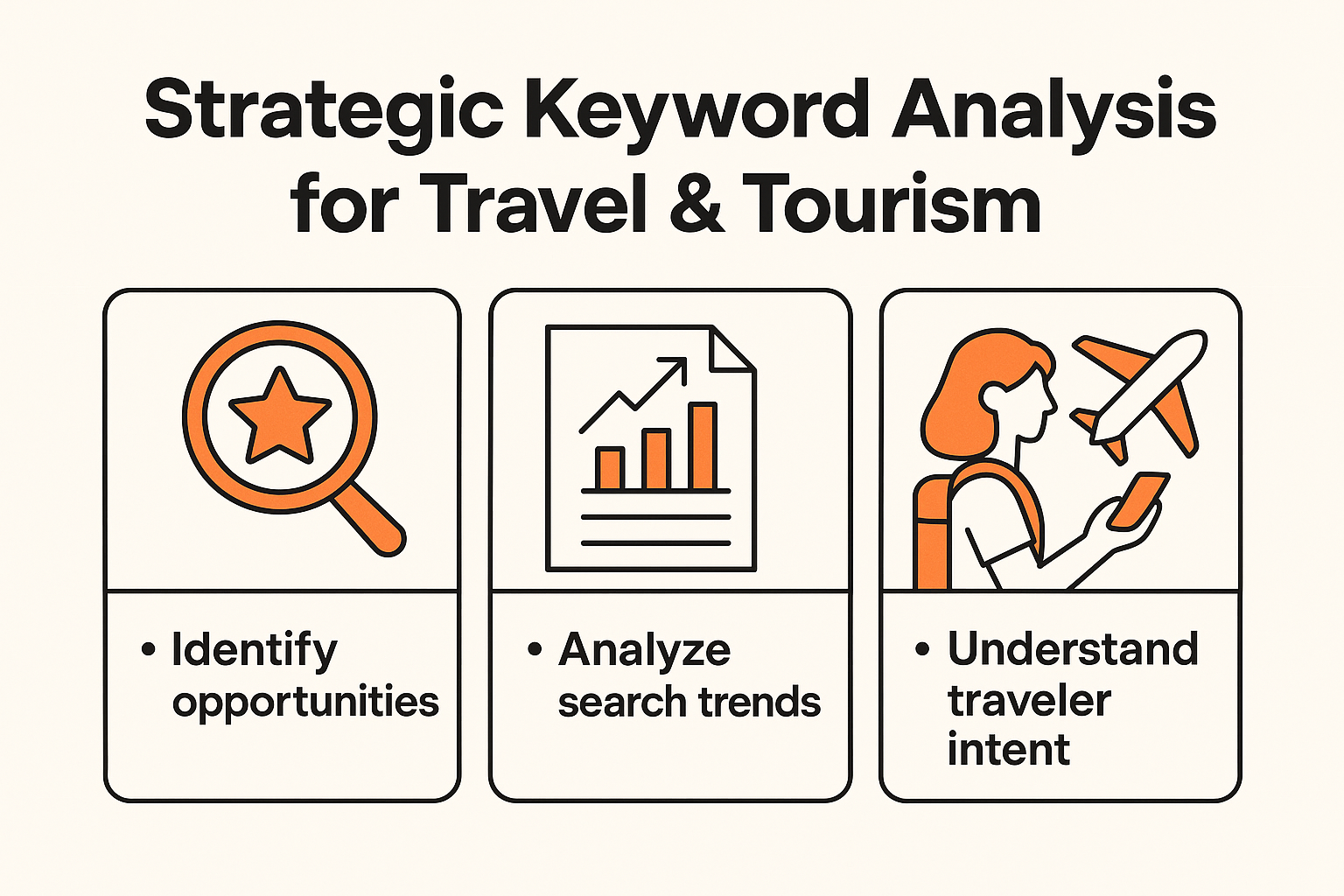Schedule a Demo
When it comes to attracting top-tier Sales Director talent within the travel and tourism industry, understanding the right keywords to use is not just helpful, it's essential. These keywords serve as the beacon that draws in the right candidates, those who are not only skilled but also passionate about the dynamic world of travel. In my experience working with industry leaders, I've seen how a well-crafted keyword strategy can transform a company's recruitment efforts, making them stand out in a competitive market.
The first step in any effective keyword strategy is identifying the core terms that resonate with Sales Directors in the travel sector. Keywords like "travel sales," "tourism sales leadership," and "destination marketing" are foundational. These terms reflect the specific skills and experiences that a Sales Director in this industry would possess. However, it's not enough to simply list these keywords; they must be integrated thoughtfully into job descriptions, company websites, and recruitment materials to maximize their impact.
Based on available research, individual results may vary, but incorporating these core keywords can increase visibility to the right candidates. For instance, using "travel sales" in your job posting can help it appear in searches conducted by Sales Directors looking for new opportunities within the sector. This approach is backed by data from platforms like LinkedIn and Indeed, where job seekers often use specific industry-related keywords to filter their search results.
Once the core keywords are in place, expanding with related terms can further refine your recruitment strategy. Terms like "hospitality sales," "leisure travel sales," and "corporate travel management" can attract candidates with diverse yet relevant backgrounds. These keywords not only broaden the pool of potential applicants but also ensure that the candidates you attract have a comprehensive understanding of the industry's various facets.
In my work with operations managers across different sectors, I've noticed that using a mix of broad and niche keywords can significantly enhance the quality of applicants. For example, a job posting that includes both "travel sales" and "corporate travel management" will appeal to Sales Directors who have experience in both general travel sales and specialized corporate travel sectors, thereby increasing the likelihood of finding a candidate with the exact skills you need.
Optimizing your job postings for search engines and job platforms is crucial for reaching a wider audience. This involves not only using the right keywords but also structuring your content in a way that is easily discoverable. For instance, using clear headings like "Sales Director for Travel and Tourism" and incorporating keywords naturally throughout the text can improve your search rankings.
Moreover, it's important to consider the algorithms used by platforms like LinkedIn and Indeed. These platforms often prioritize job listings that are well-optimized with relevant keywords. By ensuring that your job descriptions are rich in terms like "travel sales leadership" and "destination marketing," you can increase the chances of your listing appearing at the top of search results, thereby attracting more qualified candidates.
Industry-specific keywords can be particularly effective in attracting Sales Directors who are deeply entrenched in the travel and tourism sector. Terms like "airline sales," "cruise line sales," and "hotel sales management" can target candidates with specialized experience. These keywords not only help in filtering out less relevant applicants but also signal to potential candidates that your company values and understands the nuances of the industry.
From my observations, companies that effectively use industry-specific keywords tend to attract candidates who are not just looking for any job, but specifically a role where they can apply their specialized skills. This targeted approach can lead to higher engagement and better retention rates, as the candidates feel that the role is tailored to their unique expertise.
While keywords are essential, they should not overshadow the importance of conveying your company's culture and values. A job posting that is stuffed with keywords but lacks a clear depiction of what it's like to work at your company can deter potential candidates. It's crucial to strike a balance between using effective keywords and providing a compelling narrative about your company's mission and work environment.
I've found that integrating keywords like "innovative travel sales team" or "dynamic tourism sales culture" can help convey both the job requirements and the company's ethos. This approach not only attracts Sales Directors with the right skills but also those who are likely to thrive in your company's unique culture.
Finally, it's important to monitor the effectiveness of your keyword strategy and be willing to adapt as needed. Analyzing metrics such as the number of applications received, the quality of candidates, and the time it takes to fill a position can provide valuable insights into how well your keywords are performing.
Tools like Google Analytics and LinkedIn's recruitment analytics can help you track these metrics and make data-driven decisions. For example, if you notice that your job postings using "travel sales leadership" are attracting fewer qualified candidates than those using "destination marketing," it might be time to adjust your keyword focus. Continuous monitoring and adaptation ensure that your recruitment strategy remains effective and responsive to market changes.
By implementing a strategic keyword analysis, companies in the travel and tourism industry can significantly enhance their ability to attract top Sales Director talent. The key lies in understanding the nuances of the industry, leveraging the right mix of core and related keywords, and continuously refining your approach based on data-driven insights.
